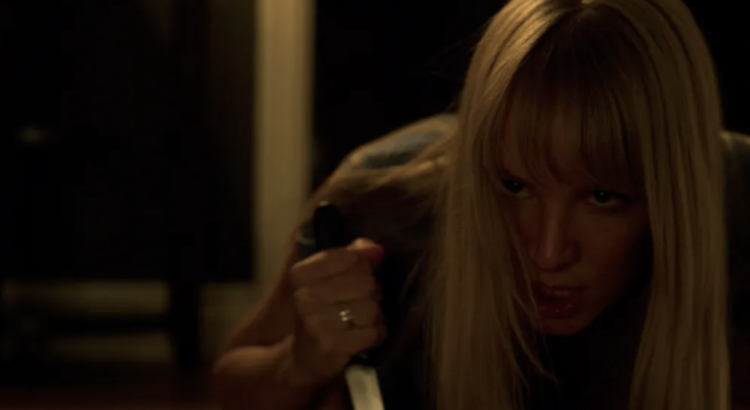I knew this movie was going to be sort of bad before I watched it; Netflix doesn’t put brand-new horror movies on their site unless they’re fairly sub-par. However, for whatever reason, I’m a bad movie junkie: I love anything campy or a little trite and easy to consume. Movies that make you analyze them have a definite place and value, but I’m doing enough schoolwork already.
So objectively, this is not a good movie. The acting was flat, the main character was cast way outside the actress’s age, the fairytale structure that A.M.I. followed to tell Cassie to kill everyone was completely out of place. It’s a step above a soap opera only in that the background music and sound quality are all right. Overall, the thing would have fit better on the Lifetime channel, where it belongs.
But the concept is still interesting; that’s why it caught my eye in the first place. Besides all of the actual cinematic qualities of this movie, the reality that technology is filling every inch of space in our lives is a startling truth, and it’s happening so fast we don’t have the time to reckon with it. Classes on Zoom, delivery of anything via an app, conveniently equipment-free workouts on YouTube, and virtual meetings have made leaving the house a necessity of the distant past. I feel like my body can’t handle sitting in temperatures below 72 anymore; I venture into the outdoors like a Floridian explorer going out into the Antarctic wilderness. I might snag a lungful of fresh air when I go for a jog long after the sun has gone down, but I come crawling back to the comfort of my computer in no time at all. Of course, all of this is amplified by the virus, but it is just a tilt upwards in a long trend with no endpoint. 
For a moment, I’d like you to imagine this movie was done by the producers of Black Mirror, and casted with actors like Daniel Kaluuya and Bryce Dallas Howard instead of a side character from iZombie. All technology-based horror has the potential of becoming gimmicky, and definitely dating itself in a few short years (the first movie in the Unfriended series, which came out in 2014, now looks like a relic of yesteryear with its old Skype interface). Simplicity is everything. It allows imagination to fill in the rest, just hinting at the depth of something gone wrong. If under different direction, and with a different cast, this movie could have made Cassie slower to blindly accept that her dead mother’s personality was captured in a cell phone she found. Her friends could have been a little less one-dimensional; I would have liked less overt direction in whom I should root for. Adding in some good nature or innocence to her victims would make their murders more chilling. Cassie could have periods of lost consciousness, showing us only hazily the work of her disintegrating mind. The audience should be just as bewildered by the events as she is, confusing justice and tragedy. I wanted flashes of the murders, just the creeping edges and muffled violence. Instead I got one or two camera angles of uninspired stabbing. 
I’m sure there will be many more movies like this one in the coming years. Maybe they won’t try to go beyond what they need to in terms of overtness, and will start straying farther from tired story structures. Here’s to hoping.


